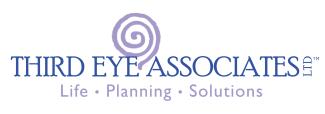Your Brain on Chocolate and Taxes
Two economists and a cognitive psychologist at the University of Oregon conducted a study that found some people really don’t mind paying taxes. The study participants were given $100 each and told that they had to pay a portion of the money as a tax to a local food bank. A machine studied which of their brain regions were tapped as they did this.
When the students paid the tax, two regions of their brains — the caudate nucleus and the nucleus accumbens — lit up. The researchers then asked the students if they would like to contribute even more money to the food pantry. The same regions of the brain lit up brighter and larger when the students gave voluntarily. Incidentally, these areas also light up when people eat chocolate or see friends. The research findings concluded that when people know their money is going to a good cause, whether it’s mandated or voluntary, they get a “warm glow.”
Whether or not you get that warm glow when you pay your taxes, you may be wondering about your current tax situation. Here are some ideas that may help you gain a better idea of where you stand:
• Review your income verifying proper taxes are withheld. If you have multiple jobs you will need to consult your CPA to adjust withholding to avoid penalties for underpayment of taxes, or overpayment of FICA taxes.
• Organize your paperwork for tax return preparation. Locate all necessary receipts and proofs of deductions as well as W-2 forms and 1099 misc. income forms.
• Maximize your contributions to your 401(k)/403(b) or other retirement plans to reduce your taxable income.
• Review your withholding if you are receiving a large tax refund annually. Perhaps you have a better use for that cash monthly, as the IRS does not pay interest on your money they hold all year.
• Review your portfolio―taking tax losses you can harvest to create capital losses that you could potentially carry forward. Many of the portfolio managers we work with will do this as part of their overall strategy.
• Plan the charitable donations you intend to make, and when you make them, be sure to get proof in the form of a receipt, regardless of how small or large the donation is, in case of a future audit as canceled checks are no longer acceptable as proof.
• Look for tax breaks―If you need to renovate your home you might get some tax relief. If you open a home equity line of credit to pay for these items, the interest may be tax-deductible. And, if you buy a hybrid or electric car, make energy-efficient improvements, or add solar, wind or geo-thermal energy systems there may be tax incentives, both state and federal.
Consider consulting with Third Eye Associates, Ltd for tax planning for 2017.
This material has been provided for general informational purposes only and does not constitute either tax or legal advice. You may wish to consult a professional tax advisor or a lawyer.
IRS CIRCULAR 230 DISCLOSURE: To ensure compliance with requirements imposed by the IRS, we inform you that any U.S. tax advice contained in this communication is not intended or written to be used, and cannot be used, for the purpose of (i) avoiding penalties under the Internal Revenue Code; or (ii) promoting, marketing, or recommending to another party any transaction or matter addressed herein.

